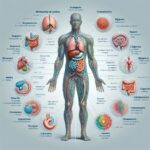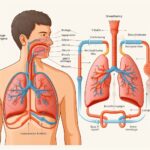The Fountain of Youth: Exploring the Fascinating World of Anti-Aging Technologies
Introduction
Aging is a natural and inevitable process that every human being experiences. As we grow older, our bodies undergo a myriad of changes, both visible and invisible, that can impact our health and well-being. However, in recent years, the field of anti-aging technologies has made significant strides, offering a glimmer of hope for those seeking to slow down or even reverse the effects of aging. In this blog, we will delve into the world of anti-aging technologies, exploring the cutting-edge research, treatments, and strategies that are pushing the boundaries of what it means to age gracefully.

Understanding the Aging Process
Before we dive into the world of anti-aging technologies, it’s important to understand the aging process itself. Aging is a complex and multifaceted phenomenon that involves genetic, cellular, and environmental factors. Some common signs of aging include wrinkles, gray hair, decreased muscle mass, and a decline in cognitive function. Cellular aging is characterized by the shortening of telomeres, the protective caps on the ends of our chromosomes, and the accumulation of cellular damage over time.
Anti-Aging Technologies: A Glimpse into the Future
Telomere Lengthening
One of the most exciting areas of anti-aging research focuses on telomeres. Scientists are exploring ways to lengthen these protective caps on our DNA to slow down cellular aging. Telomere extension therapies may hold the key to increasing the lifespan of our cells and potentially delaying the onset of age-related diseases.
Senescence Reversal
Cellular senescence is a state in which cells lose their ability to divide and contribute to tissue repair. Accumulation of senescent cells is associated with various age-related diseases. Researchers are developing therapies to remove or reverse senescent cells, potentially rejuvenating tissues and organs.
Genetic Engineering
Advancements in genetic engineering, such as CRISPR-Cas9 technology, offer the possibility of modifying genes associated with aging and age-related diseases. While still in its infancy, this technology holds great promise for customizing our DNA to resist the effects of aging.
Regenerative Medicine
Stem cell therapies and tissue engineering are emerging as potential anti-aging solutions. These technologies may enable the repair and replacement of damaged or aged tissues, such as skin, cartilage, and even organs, to restore youthful vitality.
Caloric Restriction and Longevity Diets
Dietary approaches like caloric restriction and intermittent fasting have shown promise in extending lifespan and improving overall health. These strategies promote cellular autophagy, which helps to remove damaged components and promote cellular rejuvenation.
Anti-Aging Skincare
The beauty industry has also embraced anti-aging technologies. Innovative skincare products incorporate peptides, growth factors, and antioxidants to combat the visible signs of aging, including fine lines, wrinkles, and age spots.
Ethical and Social Considerations

While the prospect of reversing or slowing down the aging process is enticing, it raises important ethical and social questions. Who should have access to these technologies? How will they impact societal norms, healthcare systems, and retirement planning? The pursuit of anti-aging technologies necessitates careful consideration of these issues to ensure equitable and responsible usage.
Conclusion
The world of anti-aging technologies is a dynamic and rapidly evolving field, offering hope and promise for a healthier, more youthful future. While we may not have discovered the literal “Fountain of Youth,” science is inching closer to unlocking the secrets of aging and extending human vitality. As research continues to advance, we must navigate the ethical and social implications of these technologies. With careful consideration and responsible use, anti-aging technologies may become a valuable tool in the pursuit of healthier and more vibrant lives.


